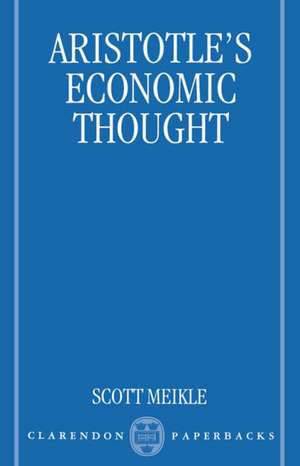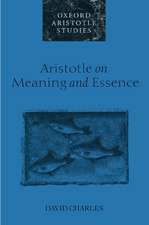Aristotle's Economic Thought
Scott Meikleen Limba Engleză Paperback – 13 mar 1997
Preț: 336.48 lei
Preț vechi: 440.56 lei
-24% Nou
Puncte Express: 505
Preț estimativ în valută:
64.38€ • 67.22$ • 53.29£
64.38€ • 67.22$ • 53.29£
Carte tipărită la comandă
Livrare economică 24-31 martie
Preluare comenzi: 021 569.72.76
Specificații
ISBN-13: 9780198152255
ISBN-10: 0198152256
Pagini: 224
Dimensiuni: 138 x 217 x 13 mm
Greutate: 0.28 kg
Ediția:Revised
Editura: Clarendon Press
Colecția Clarendon Press
Locul publicării:Oxford, United Kingdom
ISBN-10: 0198152256
Pagini: 224
Dimensiuni: 138 x 217 x 13 mm
Greutate: 0.28 kg
Ediția:Revised
Editura: Clarendon Press
Colecția Clarendon Press
Locul publicării:Oxford, United Kingdom
Recenzii
Meikle's book puts Aristotelian metaphysics back on the agenda for anyone who is seriously concerned to understand the fundamental issues of the nature of value and its correlative, the (un)-ethical nature of contemporary capitalism. There are very few issues that are more fundamental and more relevant than these.
Meikle's book is an important scholarly contribution to our understanding of Aristotle's economic thought.
the book is undoubtedly well written, and written with great commitment ... It is extremely well researched, and Meikle is thoroughly familiar with the commentators, modern, mediaeval and (to a lesser extent) ancient, on Aristotle's economics.
Meikle's book is an important scholarly contribution to our understanding of Aristotle's economic thought.
the book is undoubtedly well written, and written with great commitment ... It is extremely well researched, and Meikle is thoroughly familiar with the commentators, modern, mediaeval and (to a lesser extent) ancient, on Aristotle's economics.










